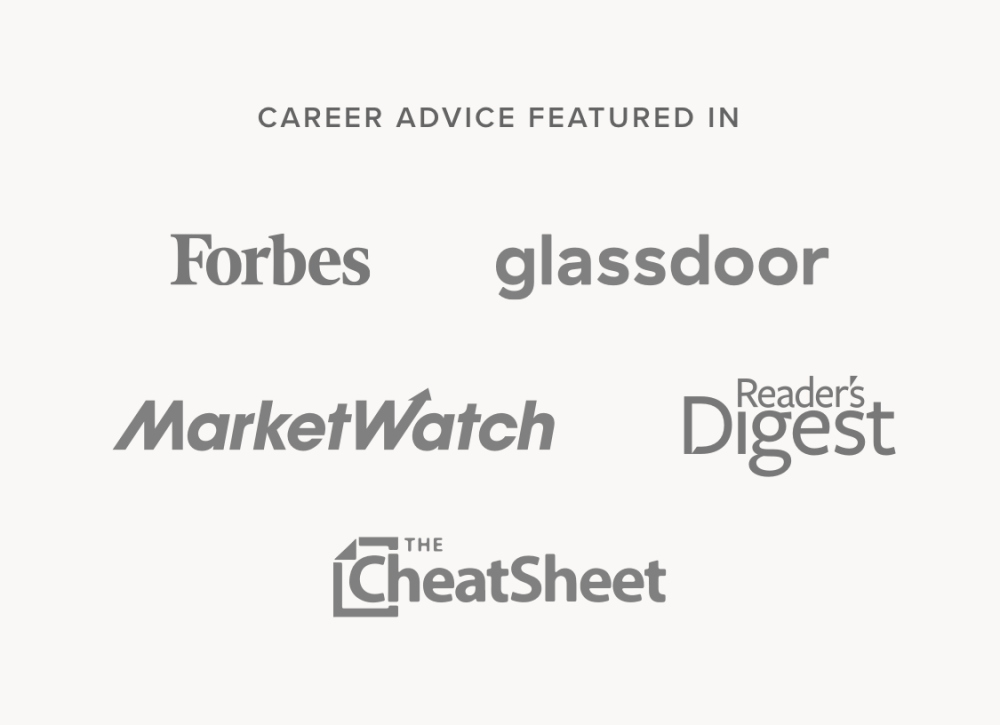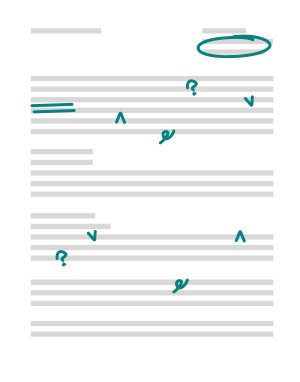Supply Chain Analyst Sample
Download and customize our resume template to land more interviews. Review our writing tips to learn everything you need to know for putting together the perfect resume.
A Supply Chain Analyst analyzes performance to identify areas of opportunity and improvement. Below is a general job description:
A supply chain analyst is responsible for improving the performance of an operation by figuring out what is needed for a certain project and coordinating with other employees - such as engineers and quality assurance professionals - to implement and test their new supply chain methods. These supply chain analysts must be able to look at substantial amounts of data and problem-solve why problems within supply chains exist. Some sample projects a supply chain analyst could be tasked with are improving the management structure of a warehouse stocking program, restructuring how material goods make it to the corporation's warehouse, and helping expand on a company's relationships with suppliers and carriers. Supply chain analysts must also be able to translate business problems into a solution for information technology (IT) technicians and working with SQL analysis tools to find patterns and root causes to problems. The supply chain analyst typically works in an office setting during regular business hours; they may also do site visits to locations such as warehouses. Payscale
If this is the kind of job you want or you have, you're in the right place! We have a resume example for you and three tips from our professional resume writers below.
Expert Tip
You should never use a creative resume
Many job seekers think that an eye-catching resume template will help them stand out to hiring managers and increase their chances of landing an interview. This is a myth put out by resume builders that value design over content.
The truth is that most hiring managers prefer a traditional resume format.
Creative resume templates, like the one pictured here, can actually hurt your chances of landing an interview. Instead, you should use a basic resume format that quickly communicates your basic information and qualifications–like the one included below.
Supply Chain Analyst resume (text format)
How confident are you feeling about your resume? If you need more help, you can always refer to the following resume sample for a position.
Name
Title
City, State or Country if international
Phone | Email
LinkedIn URL
SUPPLY CHAIN ANALYST PROFESSIONAL
Accomplished Supply Chain Analyst with more than 20 years of progressive experience providing exceptional leadership and strategic solutions to maximize profits while decreasing operational expenses. Extensive cross-functional expertise in purchasing, industry of international trading, supply chain service, consumer electronics, real estate development, B2B internet platforms, logistics, relationship management, and the development of integral process improvements. Strategically design, plan and execute long-term solutions to increase efficiency and bottom-line revenues, leveraging expertise in finance and accounting to ensure company fiscal goals are met. Develop and implement resource-efficient procedures that result in a decrease in overhead while increasing profits. Focused on customer satisfaction, ensuring timely delivery on requirements to achieve retention and loyalty. Out-of-the-box thinker and expert negotiator, able to establish strategic vendor/supplier relationships that lead to performance-based, low cost solutions.
CORE COMPETENCIES
Vendor Relations
Government Agencies
Communications
Supplier Integration
Project Coordination
Vendor Analysis
Documentation
Inventory Management
Cost/Benefit Analysis
PROFESSIONAL EXPERIENCE
Supply Chain Analyst
ZipJob, New York NY | Year to Year
Responsibilities
Reduced annual expenditure in cost of goods by 25% annually through contract negotiations, implementing best-in-class inventory management practices, and initiating accurate demand forecasting.
Achieved a 15% reduction in shipping expenditure by way of strategic supplier selection and leveraging expertise of suppliers' standard operating procedures and available discounts.
Managed complex programs, effectively managing capital, supplier performance, and risk assessments in order to achieve maximum growth and profits.
B2B internet platform focus on providing the best service of supply chain management and finance to small Chinese manufactures.
Prepared and tracked the budget to turn around 90million dollars business in one year
Designed and controlled the management system in one month
Reduced all the operating cost by 15% and enhanced efficiency of operating by 10% in three months
Developed business with more than 500 manufacturers in one year.
Established and maintained relationship with more than 40 financial institutions in one year
Managed custom service department and achieved all replies in 24 hours
Provided business support and training to technical section
EDUCATION
Complete School Name, City, St/Country: List Graduation Years If Within the Last Ten Years
Complete Degree Name (Candidate) – Major (GPA: List if over 3.3)
Relevant Coursework: List coursework taken (even include those you are planning on taking)
Awards/Honors: List any awards, honors or big achievements
Clubs/Activities: List clubs and activities in which you participated
Relevant Projects: List 2-3 projects you have worked on
Everything you need to write your supply chain analyst resume
Now that you’ve seen an example of a job winning Supply Chain Analyst resume, here are some tips to help you write your own. You should always begin with a summary section. Remember to use basic formatting with clear section headings and a traditional layout. Finally, be sure to include top skills throughout your resume. We’ve included several examples common for Supply Chain Analyst below.
Let’s start with your resume summary section.
1. Summary
The resume summary replaces the out-of-date resume objective. A summary outlines the most impressive parts of your resume for easy recall by your potential employer, while also serving to fill in personal qualities that may not appear elsewhere on the page. Remember that summaries are short and consist of pithy sentence fragments! You can check out the Supply Chain Analyst resume example for more information!
Expert Tip
Always start with your most recent positions at the top of your resume. This is called reverse-chronological format, and keeps your most relevant information easy for hiring managers to review.
2. Formatting
Our experts recommend you start your resume with a resume summary, like the one above. Other common sections are Work Experience, Education, and either Skills or Core Competencies. Here are some guides from our blog to help you write these sections:
Some resumes will include other sections, such as Volunteer Experience or Technical Skills. When it comes to what sections you need to include on your resume, you will know best!
Other sections for you to consider including are foreign language skills, awards and honors, certifications, and speaking engagements. These could all be relevant sections for your resume.
3. Appropriate skills
Your resume should include all your skills that are relevant to your target job. Skills include both hard skills and soft skills. Hard skills are the technical know-how you need to complete a job, such as data analysis or HTML. You can include hard skills in your core competencies section. Soft skills are harder to quantify, so they require more information to explain your aptitude. Some top soft skill examples include communication, problem solving, and emotional intelligence. Use several examples of how you use your key soft skills throughout your work history, profile summary, and resume title.
4. Experience section
Your Work Experience section should make up the bulk of your resume. This section should include your relevant job titles, companies that employed you, and the dates you were employed.
Your Work Experience section should make up the bulk of your resume. This section should include your relevant job titles, companies that employed you, and the dates you were employed. Most people will finish this section by listing daily duties in short bullet points. Don't be one of them! To make your resume stand out, you need to add your accomplishments and key skills to your resume's Work Experience section. Here are three tips from our experts:
Use the STAR method to describe a situation, task, action, and result. This is adapted from a behavioral interview technique, so interviewers will recognize the format. it's also a great chance for you to organize your key accomplishments.
Don't forget about LinkedIn! The majority of employers are going to look you up on LinkedIn, so it's smart to make sure your LInkedIn profile is up to date and include your URL in your resume's contact section.
Always include a cover letter. Not everyone will bother, so it helps you look like a serious job applicant. It's also your chance to introduce yourself: who you are, why you're applying for this job, and how you want to proceed.
Let’s wrap it up!
Standout resumes will include a resume summary, a traditional reverse-chronological layout, and the skills and experience relevant to your job target. This resume example shows how to include those elements on a page. It’s up to you to insert your personal compelling qualifications.
Keep your resume format easy to scan by both humans and computers; our resume template is designed by our experts to satisfy both audiences. And be sure to include your own skills, achievements, and experiences. Job-winning resumes are resumes that successfully market you, leading recruiters and hiring managers to want to learn more!
Finally, emphasize your interest with a customized cover letter. When writing, remember that the resume and cover letter should support each other. Check out our cover letter tips and examples for more advice.
Didn’t get the specific answers you were looking for on this page? Hire a professional resume writer to get the advice you need to land your next job.
Related posts:




